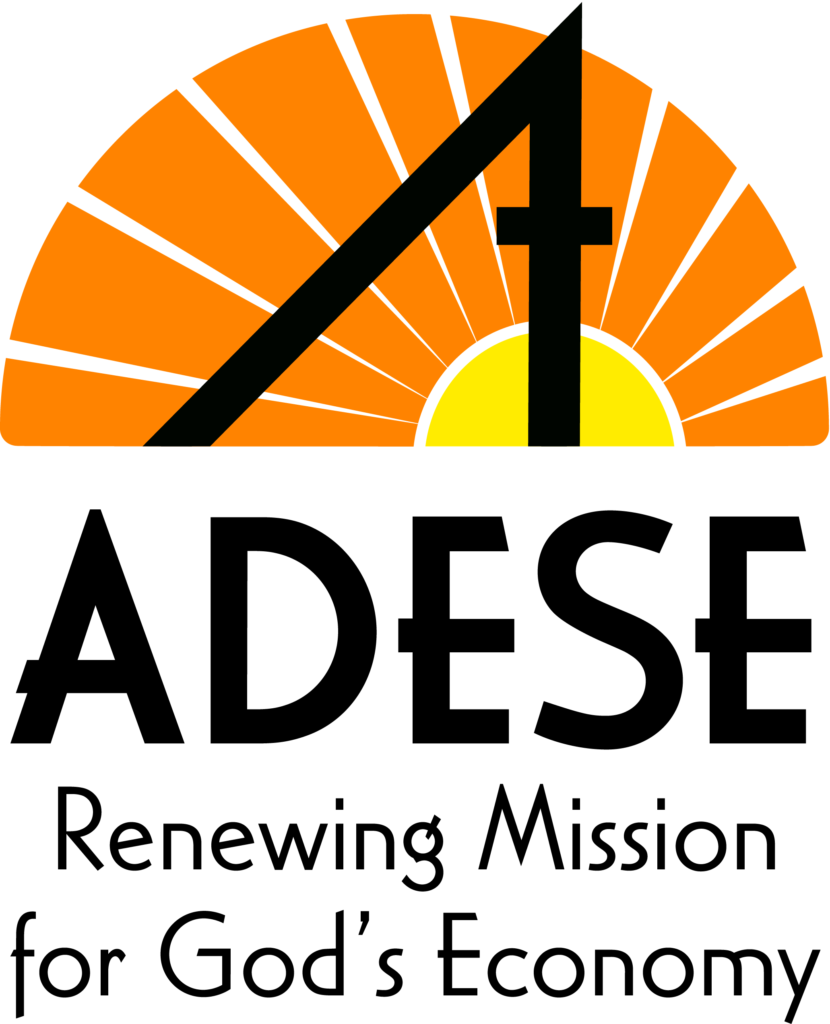Adese Fellows begin work to live into God’s economy in their local communities
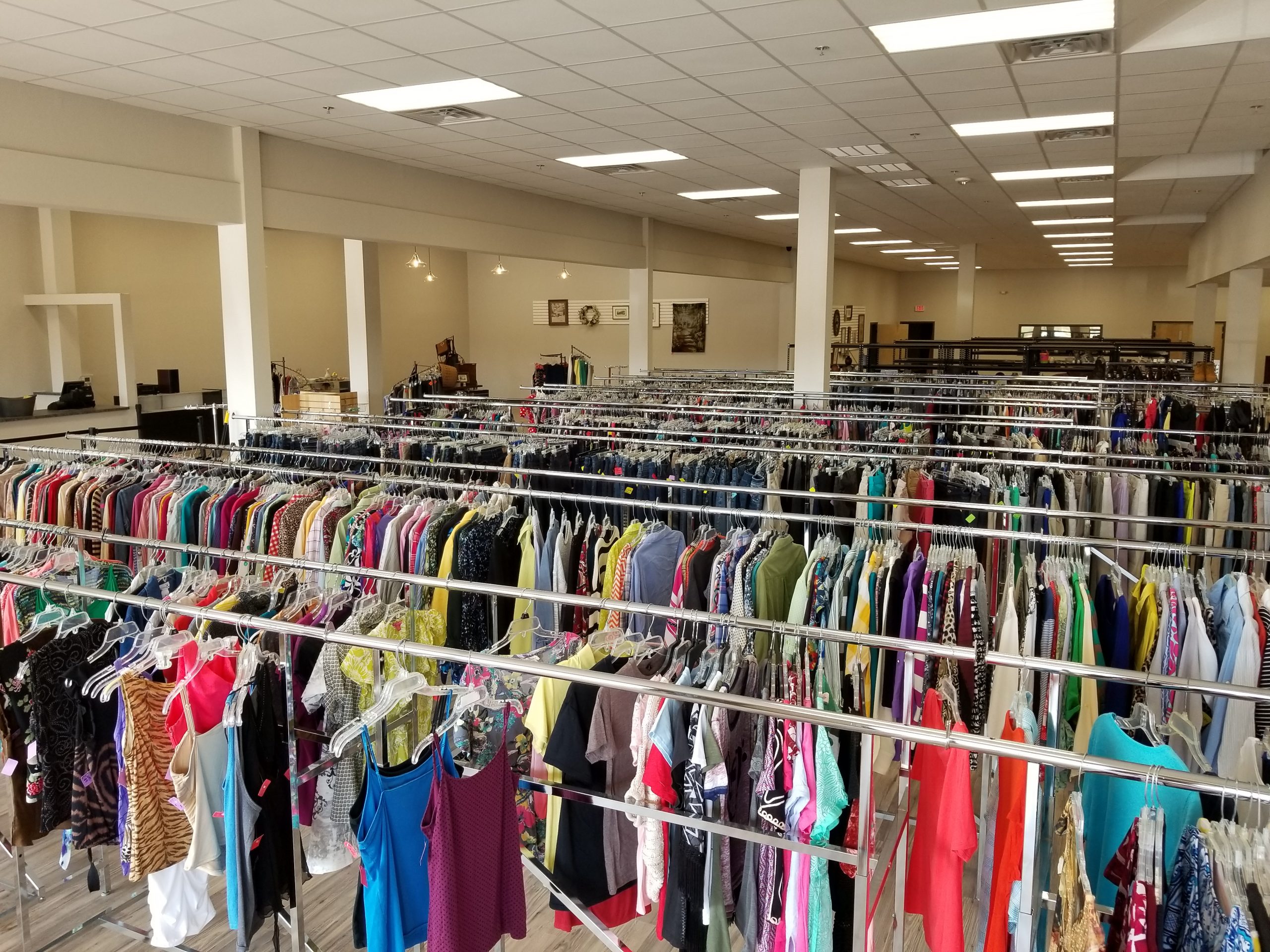 Greg Smith has spent much of the last few weeks stocking inventory, readying to relocate. As the Director of Social Enterprise of the Wesley Mission Center (WMC), he, his employees and volunteers are moving a community thrift store from donated space on the campus of a large Methodist church in Mansfield, Texas, to a retail plaza his organization recently purchased.
Greg Smith has spent much of the last few weeks stocking inventory, readying to relocate. As the Director of Social Enterprise of the Wesley Mission Center (WMC), he, his employees and volunteers are moving a community thrift store from donated space on the campus of a large Methodist church in Mansfield, Texas, to a retail plaza his organization recently purchased.
When the Wesley Mission Center Thrift Store reopens on March 1 in its new location, Smith and his team will be reimagining a ministry, enlarging a social enterprise that benefits the entire community.
“The store’s revenue funds the Mission Center’s mission of empowering people on their journey to self-sufficiency,” Smith said. “Our current programmatic offerings are based on the Working Family Success Model and include employment services and financial coaching. We are now taking the existing model and making it a whole lot bigger in a place we actually own.” A bigger footprint, operating on a larger scale, with plans to add coaching space, classroom space and office space to the operation; all with the goal of assisting more people change their lives.
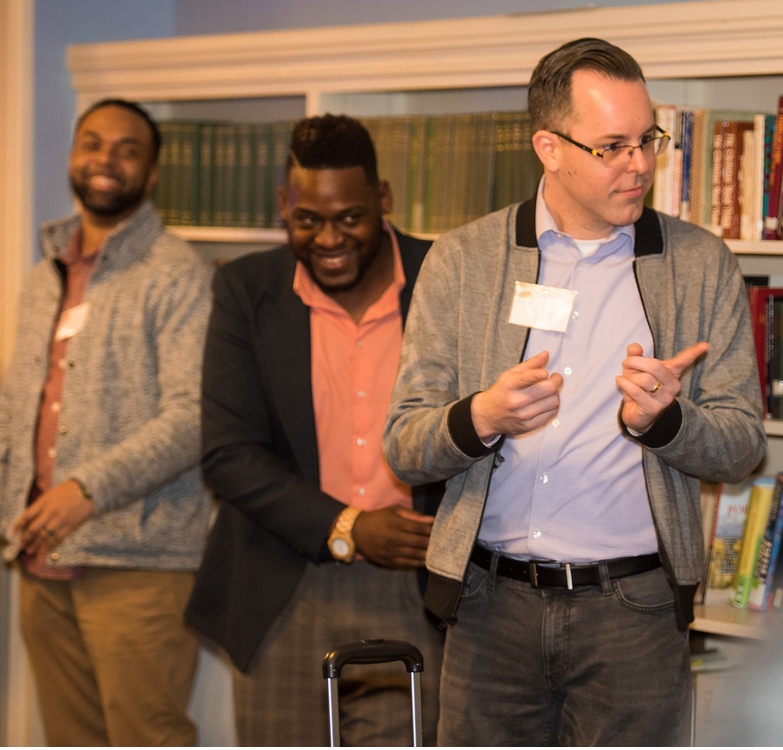 “Our non-profit helps people get back to wholeness and wellness,” Smith continued. “We’re providing the bridge to help them get back on their feet, from where they are to where they want to go.”
“Our non-profit helps people get back to wholeness and wellness,” Smith continued. “We’re providing the bridge to help them get back on their feet, from where they are to where they want to go.”
Smith is being supported along the way by United Church of Christ Office of Congregational Assessment, Support and Advancement (CASA) and the UCC Church Building & Loan Fund in the form of the Adese Fellowship.
“Adese is a new language for spiritual innovation, for faithful entrepreneurship, all through social business practices,” said the Rev. Chris Davies, “We seek to make a direct impact in economic injustice, transforming communities because of our faith. Through a theological base, practical skills, and a community of fellows on a similar path, Adese Fellows are equipped to change the world.”
Smith is of fourteen Fellows in the initial Adese cohort, an ecumenical group of spiritual entrepreneurs with access to a year-long, all-expenses paid curriculum of self-discovery. The Fellows, a diverse unit of men and women, clergy and lay leaders, gathered for their first retreat in Boston in late January. They will spend the next several months, through theological reflection and business development work, obtaining tools to create revenue generating enterprises –non-profit, for-profit or church-based businesses that are as focused on advancing the vision, mission and goals of the Gospel as they work to fight poverty in their local communities.
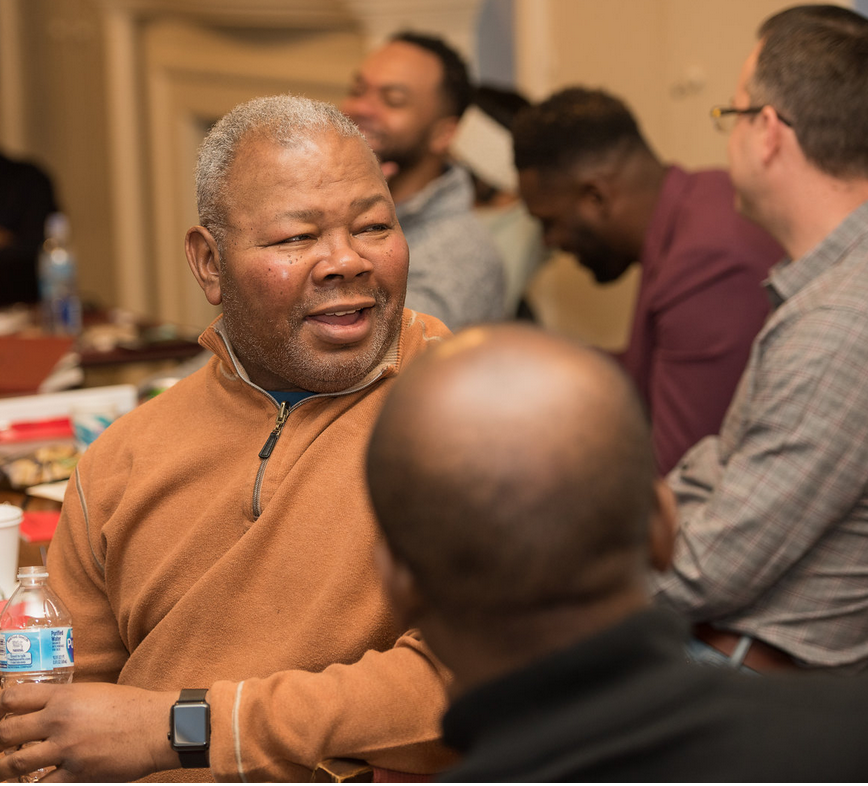 Another Adese Fellow, the Rev. Paxton Hughes, senior pastor of Ebenezer Baptist Church in Kings Mountain, N.C., couldn’t help but celebrate when he learned he was chosen from almost five dozen applicants this year.
Another Adese Fellow, the Rev. Paxton Hughes, senior pastor of Ebenezer Baptist Church in Kings Mountain, N.C., couldn’t help but celebrate when he learned he was chosen from almost five dozen applicants this year.
“When I learned I was one of Fellows of this program, I yelled, YES, YES, YES and was jumping up and down just like I had just scored the winning touchdown and now I’m heading to the Super Bowl,” Hughes said. “And several ‘thank you God’ came forth from this enormous wellspring of joy. Something that I had envisioned and labored towards was going to happen.”
Hughes plans to develop an information and learning center, to provide coaching to current and prospective entrepreneurs who want to launch business ventures that address economic injustices. His “EL3” — Entrepreneurship and Leadership (Arts, Invocation and Advice) — is designed to inform and educate. Teaching those who come to him for assistance to ask right questions and do their research, to know their market before they launch their business, so they have the information and tools to succeed.
His introduction to the Adese Fellowship program last month left him blown away.
“I took away from the retreat much more than what brought or shared,” Hughes said. “I was inspired by the coaches, faculty, staff, other fellows and a team of leaders I can trust for guidance towards this venture into spiritual entrepreneurship. I have real strong concept of my venture, I can see it in-place. I have phases of development from a fully launched ministry venture to an incorporated non-profit.”
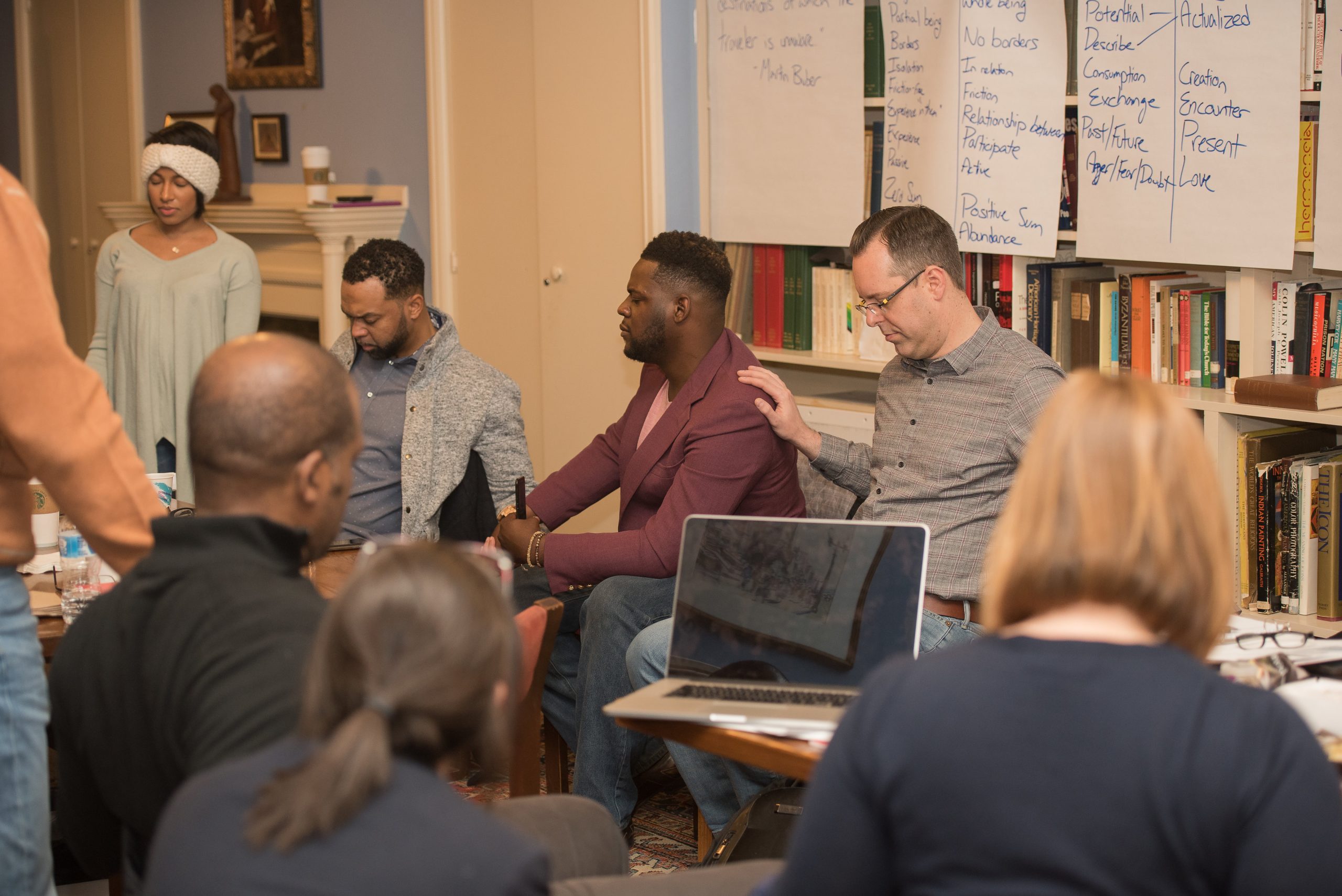 Hughes and Smith are both enthusiastic about the congeniality of the Fellows group, chosen from a total of 58 applicants because of their focus on economic injustice, and their faith-filled commitment to the work. More than a traditional non-profit, Davies said these Fellows seek to make a direct impact in economic injustice; from hiring practices to business experience, to incubators, like Hughes’ venture, that teach how to create further businesses where there are few.
Hughes and Smith are both enthusiastic about the congeniality of the Fellows group, chosen from a total of 58 applicants because of their focus on economic injustice, and their faith-filled commitment to the work. More than a traditional non-profit, Davies said these Fellows seek to make a direct impact in economic injustice; from hiring practices to business experience, to incubators, like Hughes’ venture, that teach how to create further businesses where there are few.
“Just hearing others, thinking along the same lines inspires me,” Hughes continued. “When you have been told that your concept doesn’t belong in the church and then you find yourself developing entrepreneurial ventures within church or others who think along the same lines — that’s inspiration that I can’t find words to express.”
“The first gathering was a resource rich opportunity to network, discuss, and dream,” Smith said. “It provided a theological framework for the year ahead. The time together in Boston helped me understand some of the many challenges spiritual entrepreneurs face, and encouraged me to stay focused.”
Smith said in the time since the gathering he has reached out to several Fellow colleagues while he was immersed in putting together the new thrift store and working through plans to redevelop the strip shopping center it will occupy, adding a new home for the mission center and its food pantry.
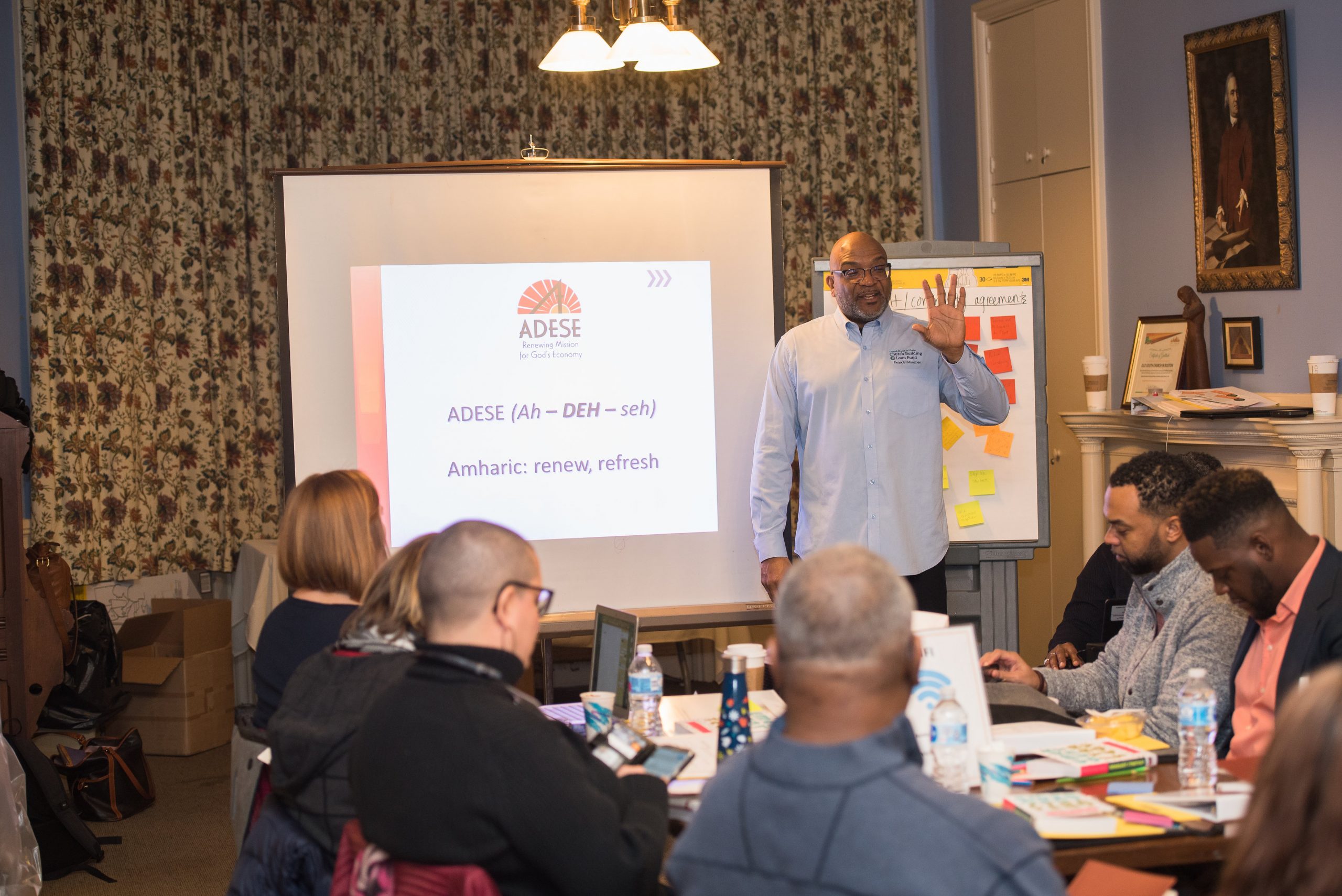 “They are making the same kind of journey,” he said. “The other Fellows are people who understand the rigor, the stress of doing all of this.”
“They are making the same kind of journey,” he said. “The other Fellows are people who understand the rigor, the stress of doing all of this.”
“It’s been a long battle for me,” Hughes said. “I am totally on fire with what we’re about to do. I want to learn the process of the fellowship so that at the end of these 12 months, I want the program to be able to present everything it can to my youth.”
Through two more retreats, in June and in November, videoconferencing, site visits and small group work in between, this cohort of entrepreneurs will have the opportunity to learn from their mentors and peers to identify the resources of their communities. At the program’s end, fellows are eligible for seed funding. They also pitch their ventures to investors.
“What we’re trying to show is that this is unknown territory, where we are literally pioneers,” said the Rev. Patrick Duggan, executive director of the UCC Church Building and Load Fund. “Spiritual entrepreneurs see God’s wealth, and we are called to multiply it. Our vision is to transform communities by helping the church live into God’s economy.”
Related News
A Prophetic Call for Justice and Peace in Palestine
The executive leaders of the United Church of Christ have issued the following statement...
Read More‘Love is Greater Than Fear’: Regional Youth Events get to the heart of gospel message
United Church of Christ teens attending this summer’s Regional Youth Events (RYE) are...
Read MoreUCC desk calendars available to order now
Prepare for your day, month and year with the United Church of Christ desk calendar —...
Read More